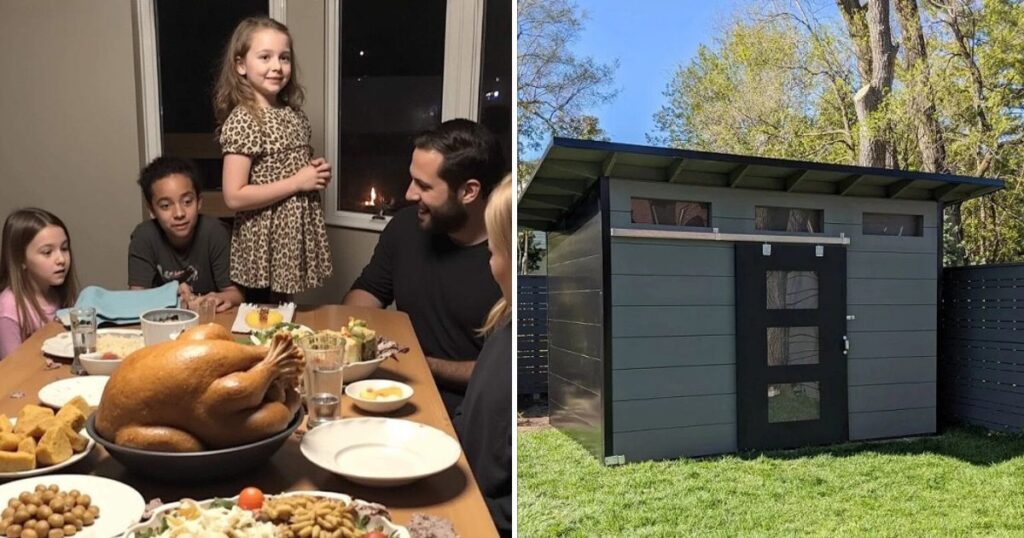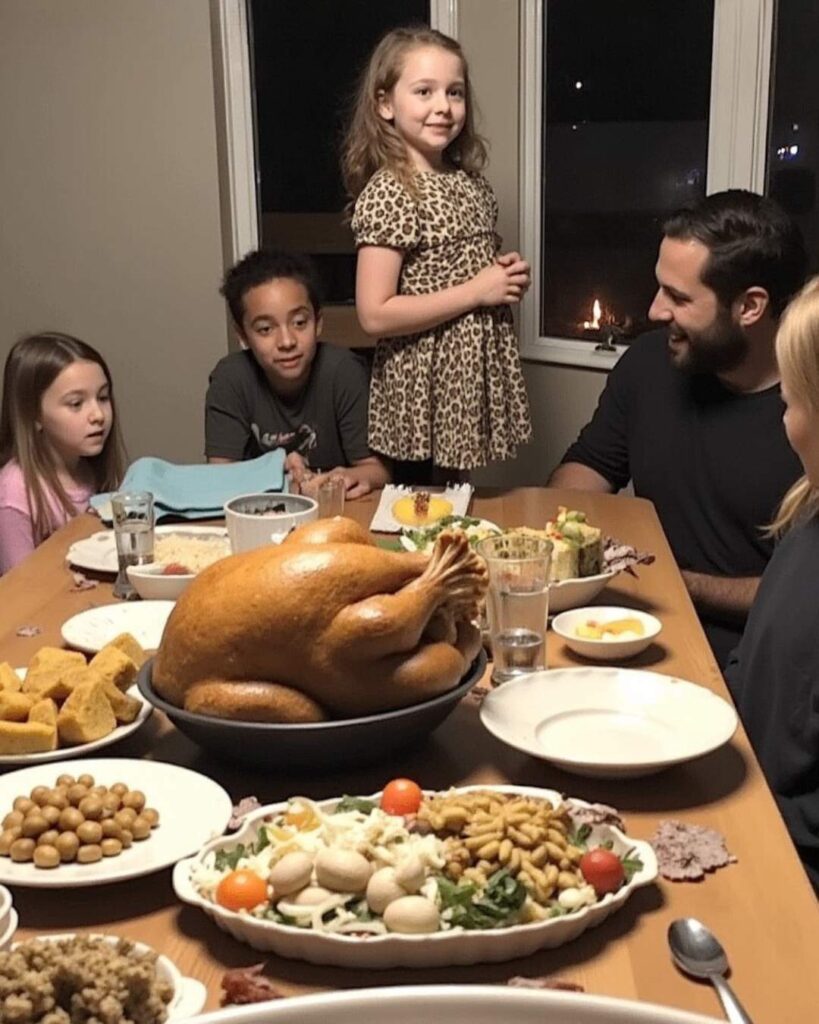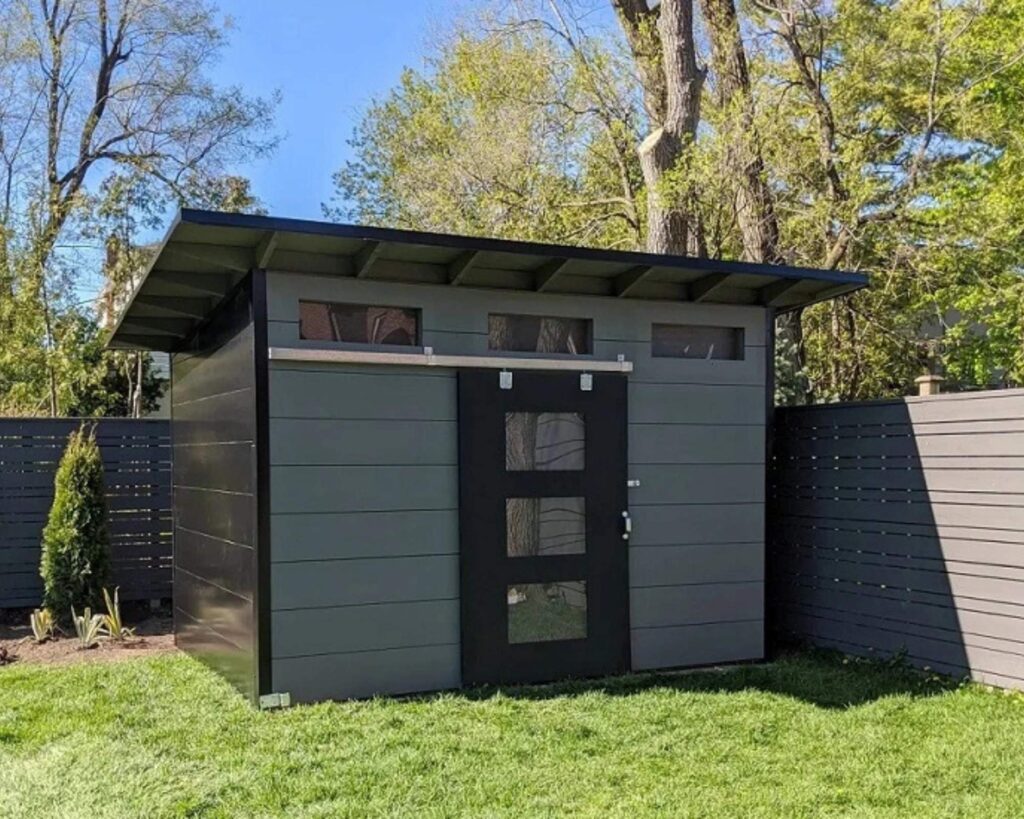
Thanksgiving dinner was supposed to be a peaceful gathering, a chance to reconnect with family and friends. But this year, as I set the turkey on the table, my 7-year-old daughter Emma had other plans. Her restless glances toward the backyard shed, coupled with her fidgety demeanor, should have tipped me off.
Instead, I brushed it aside, focused on carving the turkey, when suddenly Emma stood up on her chair. Her small voice rose to a shocking shout:
“And where is SHE?! The woman Dad keeps in our shed!”

A Tension That Could Be Cut with a Knife
The room froze. My husband, Peter, went pale, his fork clattering to his plate. My parents and in-laws exchanged wide-eyed glances, while my brother nearly choked on his wine.
I turned to Emma, heart pounding. “What are you talking about?”
“She’s real! I saw her when you were at work! Dad talks to her, and he brings her food! Why isn’t she here for dinner?” Emma’s innocence made her words even more piercing.
Peter stammered, “That’s enough, Emma. Sit down.”
But Emma was undeterred. She grabbed my hand. “Come on, Mom! I’ll show you!”
The air was electric with suspicion and confusion. My father muttered something about calling the police, while my mother looked ready to faint. My curiosity and a simmering sense of betrayal drove me to follow Emma to the shed, Peter trailing behind us, his protests growing louder.
The Woman in the Shed
Emma flung open the shed door. Inside, the faint smell of mildew mingled with the cold autumn air. For a moment, I saw nothing unusual—gardening tools, a lawnmower, and boxes of forgotten items.
Then I saw her.
In the far corner, on a makeshift cot, sat a frail woman wrapped in a threadbare blanket. Her eyes widened, more in fear than surprise. She looked to be in her late 30s or early 40s, her face weathered and thin, her hair tied back in a messy bun.

Peter stepped forward, hands raised as if trying to calm me. “I can explain—”
The woman’s voice was soft but clear. “Please don’t be angry with him. He’s only been helping me.”
I turned to Peter, my voice shaking. “Who is she? What is she doing here?”
Peter hesitated, then sighed. “Her name is Clara. She’s our neighbor—or at least she used to be. She lost her home a few months ago. I found her sleeping in the park one night when I was walking the dog. I couldn’t just leave her there.”
A Secret Compassion
Peter explained that Clara had been evicted after losing her job. With no family to turn to, she’d been living on the streets. He’d let her stay in the shed temporarily, bringing her food and blankets.
“Why didn’t you tell me?” I asked, my voice breaking.
“I wanted to,” he said. “But I was afraid you’d think… I don’t know, that it was inappropriate. Or that you’d worry about Emma’s safety.” He glanced at Clara, then back at me. “I just wanted to help her without causing any trouble.”
Clara’s eyes brimmed with tears. “He’s been nothing but kind. I didn’t mean to cause problems for your family.”
A New Beginning
The tension from the shed spilled back into the dining room as we returned with Clara. My parents were wary, my in-laws skeptical, but Emma beamed with pride. “I told you she was real!”
As the evening wore on, the initial shock gave way to understanding. Over pumpkin pie, Clara shared her story—how she’d worked as a nurse before an injury left her unable to work, how quickly life unraveled when her savings ran out.

By the end of the night, my anger had melted into something more complicated—a mix of guilt, admiration, and resolve. Peter had made a poor choice in keeping this secret, but his heart had been in the right place.
That night, as we cleaned up the dishes, I told him, “We’ll figure this out. Together.”
Peter smiled, relief washing over his face. “Thank you.”
A Thanksgiving to Remember
In the weeks that followed, we helped Clara find a more permanent solution. With the support of local charities and some friends, she was able to secure temporary housing and eventually a new job. Emma remained her biggest cheerleader, often visiting her and bringing her small gifts.
Thanksgiving had started as a near disaster, but it became a turning point for our family—a reminder of the importance of honesty, compassion, and the power of a second chance.
In the end, the woman in the shed wasn’t just Clara. She was also a mirror, showing us the kind of people we aspired to be: kind, forgiving, and willing to open our hearts—even when it’s uncomfortable.





